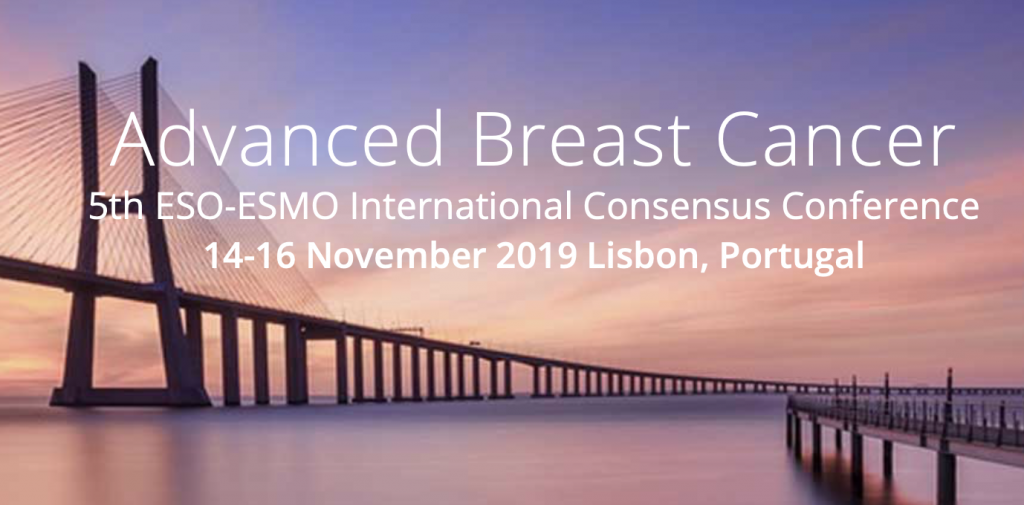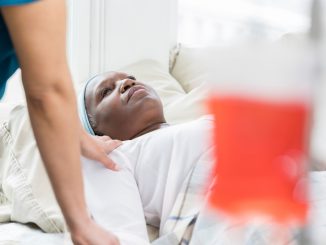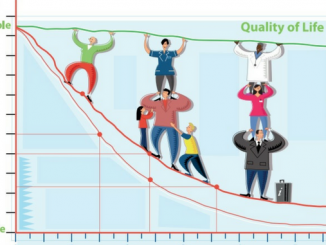“‘You look so well!’, has just got to be the worst thing you can say to someone with advanced breast cancer. Was it meant to be a compliment? Actually it makes me feel invisible,” says Clair Myerson, who lives with advanced breast cancer since 2015. “I haven’t lost my hair with this drug,” she explains, but it doesn’t mean that she’s feeling comfortable with her body and image all the time. In her emotional speech at the Lisbon ABC5 – Advanced Breast Cancer Fifth International Consensus Conference opening session she made it clear that “ABC patients need much more than clinical care”. Specifically for her “it’s has been always 10% clinical and 90% emotional and practical”.
 Emotions are just the way Fátima Cardoso – Director of the Breast Unit of the Champalimaud Clinical Centre, in Lisbon, and Coordinating Chair of ABC5 Conference – wanted this two and a half days conference to start: “I don’t think we can be great doctors if we take away our emotions,” she said. And great doctors, as Clair Myerson defined, are the ones that “ask questions and take the time to understand the patient in the context of that patient illness”, Cardoso added.
Emotions are just the way Fátima Cardoso – Director of the Breast Unit of the Champalimaud Clinical Centre, in Lisbon, and Coordinating Chair of ABC5 Conference – wanted this two and a half days conference to start: “I don’t think we can be great doctors if we take away our emotions,” she said. And great doctors, as Clair Myerson defined, are the ones that “ask questions and take the time to understand the patient in the context of that patient illness”, Cardoso added.
Asking and listening — repeatedly and frequently — was one of the most recurring messages in the patient advocacy sessions. Doctors need to spend more time with their patients because good communication improves patient outcomes and compliance with treatment, said Luzia Travado, Head of Psycho-Oncology Unit of the Champalimaud Clinical Centre. Also, patients need to communicate with their families.”I have always been very open with my kids about my cancer, feeling that they wanted to be trusted with the information and wanted to do what they could to support me,” said Clair Myerson.
Good communication with physicians starts in the first appointment, when the carer needs to know everything there is to know about the person, including if the patient is taking alternative or complementary medicines (CAM). Patients tend not to tell their doctor that they are taking CAM and most doctors don’t even ask about: “Avoid or be very careful with other treatments along with your anticancer treatments, as they might interfere with your medicines and change the doses or might be even poisoning” warned Renate Haidinger, President of the German Breast Cancer Association. “It is usually very cost-intensive, without proving it has any positive effect on cancer.”
If communication is hard and there’s a lack of trust in high-income countries with well-established health care systems, it gets even harder in low-income countries, such as Nigeria. “Doctors don’t have enough time with the patients to tell them ‘Look you are going to survive this!’. And people resort to a lot of alternatives” said a Nigerian patient advocate in the audience, recalling that the country has a high breast cancer mortality rate. “In my country, 80% of people say if you have cancer and you take chemotherapy you’ll die.” Education not only for cancer patients but mainly for healthy people mioght be a solution, for the Nigerian patient advocate.
Increase public understanding of advanced breast cancer, provide up-to-date information to patients and offer communication skills training to healthcare providers are some of the goals of ABC Global Alliance, launched in 2016, backed by the European School of Oncology (ESO). On 16 November, ABC Global Alliance will be created as an independent organization and legal entity based in Lisbon.
Fátima Cardoso’s role in establishing the biennial ABC conferences — that this year has 1.450 participants from 95 countries — and in creating the ABC Global Alliance initiative granted her the 2019 Advanced Breast Cancer Award, in recognition of her outstanding role in increasing awareness on a disease and possible interventions that were often neglected in favor of finding new treatments for early breast cancer. And when for the second time in a couple of minutes — first to Clair Myerson, then to Fátima Cardoso — the audience stood up and applauded, emotions won the day.





